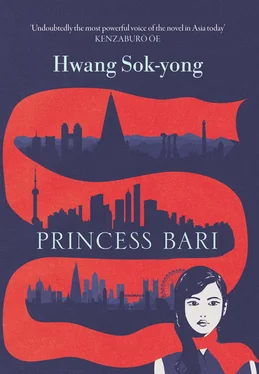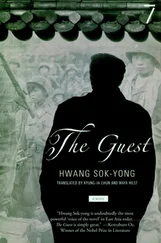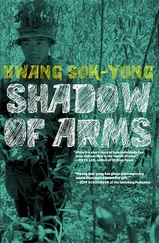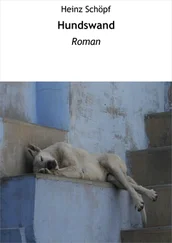A stormy sea. A single boat tosses like a leaf amid mountainous waves, barely making it from crest to crest. It is a fishing boat with a squat cabin like a tiny house sticking out of the top. The belly of the ship is stuffed with the day’s catch. In that cramped space, where the ceiling is so low that a person can’t even sit straight up, water sloshes and rises. Then I notice the people squirming inside. Men, women, children. Ten, twenty, maybe thirty or more. Waves surge over the side of the boat, sweep over the deck and pour down into the hold. Women and children struggle and try to crawl out. The crewmen kick and shove them back in. They close the hatch and padlock it. The wind and waves subside, and the sea is sunny. A distant mountain peak in a foreign land appears on the horizon. The crew remove the dead bodies from the hold and toss them into the sea. Bodies sink below the surface, bob back up, are swept along by the waves.
The coast of a foreign country. A boat, half-sunk and listing. Vegetable crates floating in the water. A large ship approaches. Uniformed people board the boat. They open the crates. Amid the tomatoes and cabbage are drowned bodies.
People suffering and struggling to breathe inside a dark container. The face of a woman clawing at the walls looms large. People crowd the door. They search for any crack in the walls before collapsing in the spaces between the cargo.
People called to the crewmen’s tiny quarters. When they are told to hand over more cash, they shake their heads and say they have none. The crewmen begin beating them. They punch their faces, kick their stomachs, gang up on them. Eyes fill with rage. Moneyless men slump to the ground, their faces bloodied. Women’s clothes are torn off. The men take turns. The women shake their heads from side to side, cry, struggle.
A narrow alley. Women alight from cars. Heavily made-up faces stare down from every window and every corner. The owner counts heads. Gives money to the men who brought them. Men lick their fingers and count their cash. The women are herded into a curtained room. The owner strips and inspects them.
A woman crouches and covers her mouth to keep from crying, crumpled skirt and top clutched to her naked body. Her face blurs and begins to shake with laughter. She’s lost her mind.
She stumbles down a road as if drunk. A young man chases her and smacks her face mercilessly. She’s dragged away by the hair and disappears down a filthy alley.
A dark basement. A single fluorescent bulb hangs from a low ceiling. Women sit at sewing machines and stitch together mountains of fabric. Men walk up and down the rows, their hands idle behind their backs.
A storage room at the back of a restaurant piled high with vegetables and shellfish. Water sloshing underfoot. Men trimming cabbage and cleaning fish.
Another stormy sea. Men who have been gathering clams stand on a tiny sandbank, naked beneath their raingear. They bring their hands to their mouths to shout. The tide rises. The sandbank slowly vanishes and the water rises from stomach to chest. The floundering bodies disappear beneath the black water, and the waves cut furrows into the surface of sea before filling them again.
The surface of the pond that revealed these scenes to me vanished, and was once again cloaked in darkness. Someone grabbed me by the scruff of the neck and dragged me away. I floated in the darkness like smoke.
Down below I saw the murky bottom of the container ship. I saw Xiang, and myself slumped beside her, and the middle-aged woman who no longer had the strength to stand. Then I saw each man in turn. I also saw other people stuffed in the spaces between the other rows of containers. Several people pulled food from a cloth bundle and ate it. One of the men violently shoved someone who was trying to steal a peek. Three men fumbled their way toward one woman. She tried to push them away and then fell to the floor. Her trousers and knickers were pulled down at the same time, and I saw the men take turns on top of her.
Xiang crawled in search of water. She lifted the bucket above her head and opened her mouth wide, but not a single drop came out. Someone reached a hand toward me in the dark. Xiang shouted. The men stepped back in surprise, and from the exterior corridor two crewmen charged in. They kicked Xiang without mercy. Then they looked around and dragged out the young men. One of the crewmen brought out a small club. He beat the young men over the head and on the spine. The beating didn’t stop until the men were flat on the ground.
After they’d each had a smoke, the crewmen dragged Xiang out to the corridor and pulled off her clothes. When she struggled and resisted, they thought nothing of punching her in the face over and over until she, too, went limp. More crewmen came down. They stood around chatting while Xiang’s naked body was turned this way and that, and laid down as they did what they wanted with her. Then they left her passed out on the floor and disappeared.
Number Eight, the middle-aged woman, was slumped to one side and did not move: it became clear that she had died. The crewmen grumbled as they carried her out to the corridor by her arms and legs, up countless metal stairs to the landing, where they cursed and swore again and took a short break before going out to the darkened deck. Two men swung the body back and forth to the count of three and then let it go, into the black crests and white furrows.
*
When did that magpie get here?
The little featherbrain snatched up my spirit, my shadow-like spirit that sometimes stretched out long and sometimes shrank down small. It picked it up in its beak, flew into the air and perched on a metal railing in the dark.
Way down below, like a scene from a play I watched as a child, I saw my body lying flat on the floor, dressed in a traditional white blouse and black skirt. Evil spirits with concealed faces, dressed in black and half-hidden in the shadows, pulled off my clothes. From above, my body looked frail and gaunt. They took knives and carved me up. My spirit self shouted in alarm. They hacked off my arms, my legs, my head, and flung them to the side. Behind them, other dark spirits crowded around. They tossed my severed limbs back and forth. The dark spirits snickered raucously and began feasting on my flesh. The ones with my torso split my belly open, pulled out my intestines, my liver, my organs — and ate.
A storm of pain washed over me, and then all was silent. My spirit self watched as my flesh disappeared, and all that was left were the bones. The dark spirits snatched up my tibias and danced. They kept rhythm to the rattling of my shinbones. O fleeting life!
I fluttered in the passing breeze and dangled from the tip of a branch on the enormous zelkova tree. Did the magpie carry me here? The bird ferried over objects one by one and dumped them at the base of the tree. My leg bone, my arm bone, my little finger, the knucklebones of my toes all clattered together. At the end, something rolled and tumbled and came to a perfect stop at the top of the pile of bones: my skull. The magpie flew to the branch where my spirit hung and perched there. He rubbed his beak against the tree and squawked:
Live or die, live or die. No difference.
Grandmother appeared and shooed away the bird. Then she sat in front of my bones. She sorted through them while Chilsung picked up scattered shards in his mouth and brought them over. Grandmother fit my bones together and sang a slow song:
Throw her out, the little throwaway.
Cast her out, the little castaway.
Over the Mountain of Knives,
the Mountain of Fire,
past the Hell of Poison,
Hell of Cold,
Читать дальше












